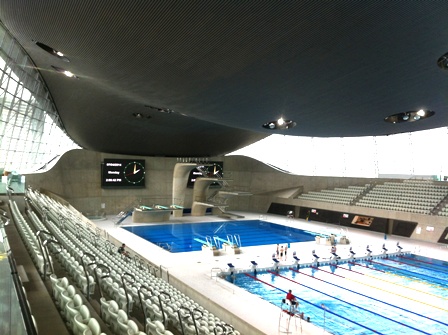
Whatever the scale of your project, some basic commissioning principles can be applied
Building a new sports or leisure centre is a long and complex journey. KKP’s David McHendry offers a 10-point list of things to remember at the outset and a few additional points to keep in mind once the project has begun.

Whatever the scale of your project, some basic commissioning principles can be applied
KKP’s work with clients includes a long list of successful leisure centre projects. However, even the most responsible of building contractors will try to construct your centre as cheaply as possible and this means that if the process does not get the right level of expert supervision corners could be cut. This then affects the longer-term quality and maintenance costs associated with your building.
With this in mind, we’ve developed our ten top tips to ensure that your leisure centre is of the quality that you want:
1: Employer’s requirements
Ensure that your employer’s requirements (ER) documentation is comprehensive and robust. This should include fully dimensioned plans, sections, elevations, and comprehensive room data sheets (ideally a National Building Specification). These are all essential.
2: Contractor’s proposals
If the contractor’s proposals (CP) don’t match your requirements deal with it. Make it justify every proposed change and
3: Risk register
Get a priced risk register for, for example, ground works, services connections, diversions, site variables and any changes to legislation.
4: Standards and regulations
Ensure that your contractor’s proposal meets all the standards and regulations you need to conform to: Amateur Swimming Association, Sport England, PWTAG, etc. Although the list can be long, it is worth the effort. Make absolutely sure that these are all written into the agreement and that conformance is monitored and evaluated.
5: Finishes
Get a branding document drawn up with expected level of finishes detailed and highlighted. This should dovetail with and complement your room data sheets.
6: Rooms
Keep a watchful eye on room areas and heights. It is not uncommon as the design development progresses for rooms to get smaller and even, in certain circumstances, disappear.
7: Realism
Be realistic about the programme but, once agreed, monitor closely and very regularly
8: Project manager
Use an experienced leisure project manager who is directly employed by you, the client, not the construction team. The project manager will be your main ally in addressing all of the above issues. Ensure that you employ someone who understands sport and leisure buildings on your project management team. If you don’t you may miss things that make a considerable difference to the cost, flexibility and effectiveness of the building operation.
9: Competition
Do your best not to commit to one contractor team too early in the design process; this can significantly lessen your control and financial accountability. Keep the environment competitive for as long as possible to stop cost and scope ‘creep’.
10: Test and consult
Returning to point one, undertake extensive market testing and consultation before fixing the brief and the design. Ensure that all relevant experts and stakeholders have had a realistic input.
In addition: ‘value engineering’
Not every contractor is out to take advantage of its client but there is no doubt that subtle (and sometimes not-so-subtle) value engineering to deliver increased contractor profit is all too common. Here is a list of some of the key ones to look out for:
David McHendry is managing director at KKP.
The Leisure Review, September 2017
© Copyright of all material on this site is retained by The Leisure Review or the individual contributors where stated. Contact The Leisure Review for details.
![]() Download a pdf version of this article for printing
Download a pdf version of this article for printing
“If the contractor’s proposals don’t match your requirements deal with it...
make sure that what is done is right for you and the long-term quality of the facility.”